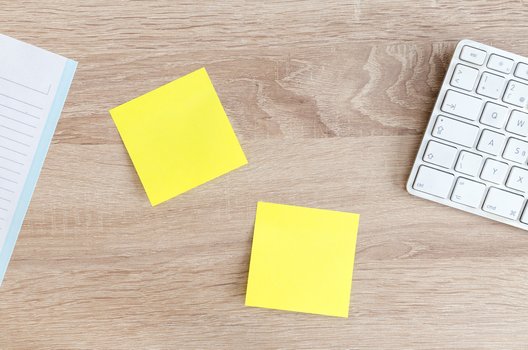Every day there are millions of thoughts going through a human mind… thoughts of work, home chores, other responsibilities, that random fact from 4th grade, that one song you heard a week ago, and so on and so forth. While all these thoughts might be amusing, not all of them are significant to the present.
Then how to separate the important information from the random and bizarre bits? How to keep focused on what’s important and what needs to be done? How to organize your thoughts? Well, this is what I’m here to help you with!
Here are a few tips that might be effective in alleviating some of your concerns when it comes to rampant thoughts and a disorganized task folder. These are some really basic tips that are universally applicable and efficacious, and I hope you find something of value while going through them.
Then without further ado, let’s get started!
Table of Contents
Document Your Thoughts

Writing your thoughts down, whether by using pen and paper or digital means, is the first step you need to take when it comes to organizing your thoughts. Too much information can be overwhelming, and there is a high chance of getting distracted by minor details and letting the important points slip.
Writing down helps you sort your thoughts and ensures that you are not missing anything. Even if you did, you can just add it later in your notes, and this makes it much easier to remain updated with task progress and to keep your sight on what’s important.
To go about this, you can create a timeline or a work calendar with important events highlighted. Planners are lifesavers, and you can even keep a journal or create video diaries! Anything that helps you in organizing your thoughts and being clear about your tasks is good to go.
Break it Down and Prioritize

After documenting your thoughts, you can sort them out in categories like work-related, personal errands, upcoming deadlines, etc. Breaking them down in this way helps you in prioritizing your thoughts and what tasks you need to do.
Focusing on one thing at a time is better than trying to juggle everything at once, so taking care of the more pressing matters first is always the best way forward.
Take Your Time

Remember, even if it seems like you are out of time, don’t rush things. Thoughts can be overwhelming, but panicking and getting scatterbrained is not going to help at all. So take your time absorbing the information, sorting it out, and then tackling the tasks at hand, one step at a time.
You can go for a walk or even take a little nap, anything that helps you and your brain in organizing the information and coming up with a clear plan. You can also try meditation to clear your mind and keep it focused.
Though taking a break to walk, nap, or meditate when you are fraught with deadlines, may sound like a waste of time to some, they are important parts of setting up your pace and, therefore, actually getting things done.
Multitasking Can be Counterproductive

Contrary to popular belief, multitasking can be counterproductive. As the proverb goes, ‘he who follows two hares, catches neither’ when you try to multitask, you divide your attention, and your brain needs to constantly switch between the two different tasks and thus different lines of thoughts and actions.
Not only is it overwhelming, but it also increases the time you put towards getting a single task done. Focusing on one thing at a time is not only more time-efficient, but it doesn’t overwhelm your brain either.
And because you are getting tasks done, even though one at a time, you don’t feel that much pressure anymore, allowing you to relax and actually becoming more productive.
Keep it Where You can See it

So you have documented your thoughts, sorted them out, and have ascertained your priorities, but as they say, out of sight, out of mind. It’s not difficult to forget things, especially if you have a lot going on.
So keeping your to-do list or timeline and work/schedule calendar in your line of sight or at a place where you can easily see and refer to it is an effective way to go about. If you are using paper, you can place it on a pinboard by your work desk, and if you are making digital notes, you can label them properly and move them to your home screen for easy access.
Consistency is the Key

And finally, be consistent!
Whether it’s documenting your thoughts or making plans after sorting them out, be consistent with your planning and execution. This helps in keeping things from getting out of hand, and you won’t get overwhelmed by mountains of tasks at once.
You get a clear idea of what you need to do and how to go about it, and your thoughts won’t be thrown in disarray just by thinking of getting up and starting work.
Conclusion
The task of organizing your thoughts is as important as it might be overwhelming. But nothing is impossible, and this applies more so to the human brain and our ability to overcome problems.
Remember, as long as you don’t panic and rush with multitasking, you can actually take your time and set the pace for future tasks while organizing your thoughts. Write them down and sort them into categories, prioritize the more pressing issues and be consistent with your work and effort.
Keeping your notes and plans where you can easily access them also helps a lot in keeping your mind clear and focused, but most importantly, don’t forget to rest and take a break every once in a while! While you’re at it, do read my article on Top Productivity Skills.

